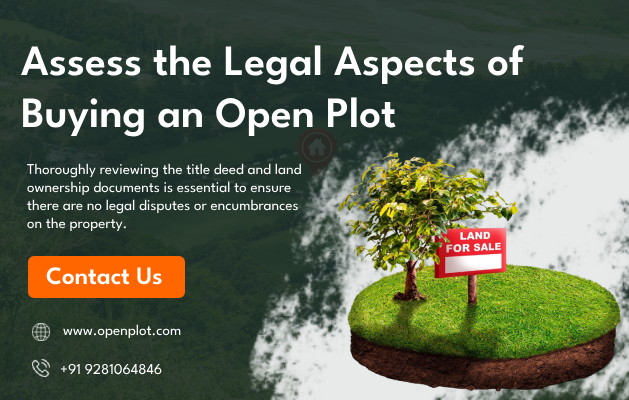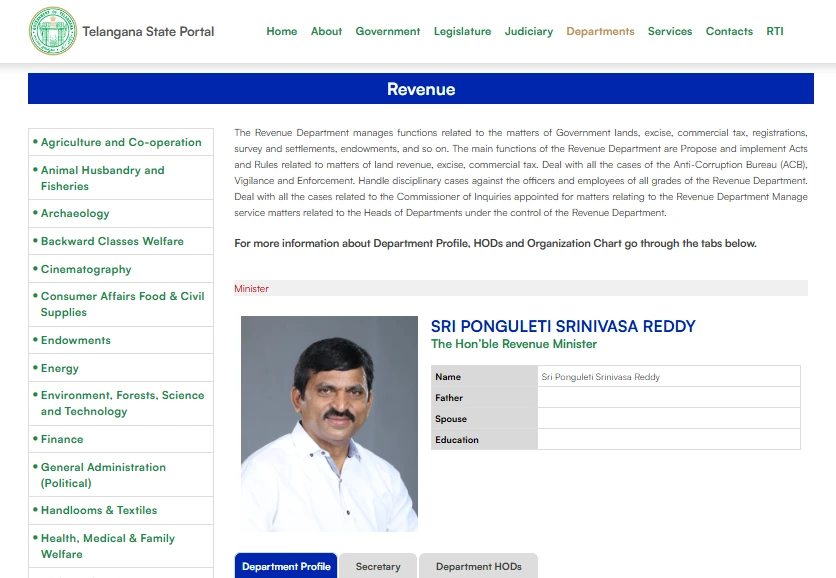Introduction
Assess the legal aspects of buying an open plot. It is essential to thoroughly review the title deed and land ownership documents to ensure no legal disputes or encumbrances on the property. Consulting with a real estate attorney can also provide valuable insight into potential legal issues from purchasing open plots. This will help protect the buyer from any unforeseen legal complications in the future. It is also advisable to conduct a thorough due diligence process to verify the authenticity of the documents and ensure compliance with local laws and regulations.

Table of Contents
- Verifying the Title Deed
- Checking Land Ownership and Seller’s Rights
- Ensuring Proper Open Plot Approvals and Permissions
- Reviewing Encumbrance Certificate
- Checking for Pending Legal Disputes on the Land
- Understanding the Land Conversion Process
- Confirming Compliance with Local and Environmental Laws
- Verifying Access to Essential Infrastructure and Utilities
- Frequently Asked Questions
Verifying the Title Deed
One of the first steps in assessing the legal standing of a plot is verifying the title deed. The title deed establishes the legal ownership of the property and clarifies whether the seller has the right to transfer ownership. Reviewing the deed carefully and obtaining a certified copy from the local subregistrar’s office are essential steps.
You must check for an unambiguous title deed (also known as a 7/12 document in some states). It’s advisable to have a real estate lawyer review the document to verify its authenticity and check for any issues, such as inheritance claims or co-ownership, that may hinder a smooth transaction.
Checking Land Ownership and Seller’s Rights
Verifying the seller’s authority to transfer land ownership is crucial to avoid fraudulent transactions. This involves examining the seller’s identity and ensuring they hold the right to sell the plot. Instances such as multiple ownership claims or unclear inheritance rights can complicate transactions and even invalidate a sale.
Buyers should request relevant identity and ownership documents to confirm the seller’s legal standing, including government identification and property records. Seeking legal counsel during this stage can provide an extra layer of assurance.
Confirming Land Use and Zoning Permissions
open plot is often subject to specific land use and zoning regulations. Which dictates what the land can legally be used for, such as residential, commercial, or agricultural purposes. Buyers should confirm with local authorities that the land is zoned appropriately for their intended use. Regional planning agencies or municipal offices provide zoning information and can clarify any restrictions or requirements. Ensuring correct zoning permissions prevents future disputes with local authorities and potential fines for unauthorized land use.
It is essential for buyers to thoroughly research and understand the zoning regulations to avoid any legal issues or setbacks in the future. Consulting with professionals, such as real estate agents or attorneys, can provide valuable guidance on navigating zoning laws. Buyers should also consider potential changes in zoning regulations that could affect their property in the future. Staying informed about proposed zoning changes can help buyers make more informed investment decisions.
Ensuring Proper Open Plot Approvals and Permissions
Before buying an open plot, it’s essential to check that all necessary approvals from relevant authorities are in place. For instance, certain regions may require permissions from environmental agencies, local councils, or other regulatory bodies, depending on the plot’s location and intended use.
These approvals are necessary for a buyer to avoid legal hurdles, delays in property registration, or even land confiscation. Confirming these permissions safeguards the buyer’s rights and ensures compliance with regional laws. It is protecting if you are buying property. But you must check the property documents. You follow the land approvals and permissions.
Also read:- Property Registration in Telangana: A Step-by-Step Guide
Reviewing Encumbrance Certificate
An encumbrance certificate is a key document that indicates whether the land is free from any financial or legal encumbrances such as mortgages, loans, or liens. Obtaining this certificate from the local sub-registrar’s office proves that the land is free of encumbrance and legally available for purchase. A thorough review of this document can reveal any hidden claims or debts the buyer may inherit after the purchase. It is recommended to have an encumbrance certificate from at least 30 years ago for a comprehensive history.
Checking for Pending Legal Disputes on the Land
Accordingly, Section 52 of the Transfer of Property Act 1882 and Section 18 of the Registration Act 1908 allow purchasers to inquire about court proceedings on the property. The registry office usually has all the details necessary to confirm the legal status of the property. By an amendment introduced by the Government of India in 1998, you are allowed to do so in section.
If any legal disputes are pending, potential buyers must be aware of them before finalizing the purchase. This information will help prevent future problems and ensure a smooth transaction process. Buyers should thoroughly investigate the legal status of the property before making any commitments. This procedure can prevent any unexpected legal problems from arising.
To check pending legal disputes on land, follow these steps:
- Get a title search report: Request a title search from the local land registration office or a reputable title company. This report provides a comprehensive ownership history and discloses any pending litigation, mortgages, or liens on the property.
- Check Court Records: Search local court records for any ongoing legal disputes related to the property. In some areas, court websites provide online access to case records. Otherwise, you must visit the court in person.
- Request Encumbrance Certificate (EC): This certificate, available from the Sub-Registrar’s office, shows any encumbrances or claims on the land, such as unpaid debts or legal issues. Ensure that the EC covers the entire period of ownership to verify a clean history.
- Seek a lawyer’s opinion: A property law lawyer can provide an opinion after reviewing all the documents. They can assess whether any hidden claims or disputes may affect the title or possession of the land.
- Review local municipality records: Local municipal or zoning officials sometimes have records of pending disputes or notices, especially regarding zoning, land use, or compliance with local regulations.
Understanding the Land Conversion Process
Land conversion refers to changing the designated use of a plot from one category, like agricultural, to another, such as residential or commercial, as per the area’s zoning regulations. This process varies based on the region but typically involves the following steps:
- Application for Conversion:
Apply to the Telangana (local) revenue department or land authority to convert the land’s usage. This often requires specifying the intended use (e.g., residential, industrial) and ensuring the land is eligible for conversion.

- Documentation Submission:
Provide required documents such as the sale deed, title deed, tax receipts, No Objection Certificates (NOCs) from relevant authorities, and, in some cases, an encumbrance certificate.
- Fee Payment:
Pay the conversion fee, which may vary depending on the property size, location, and the intended usage category.
- Inspection and approval:
Authorities may physically inspect the land to confirm eligibility for conversion. They will evaluate factors like proximity to residential areas, environmental impact, and infrastructure availability. Upon successful inspection and document verification, an official conversion order is issued.
- Compliance with Additional Local Requirements:
Some regions may require additional steps or compliance checks, especially for environmentally sensitive areas. Ensure all regional specifics are met to avoid delays.
Confirming Compliance with Local and Environmental Laws
Before purchasing or developing land, it’s essential to ensure compliance with both local zoning laws and environmental regulations. Here’s a checklist to follow:
- Zoning Compliance: Check zoning laws to ensure the land is designated for the intended purpose (e.g., residential, commercial). Contact the local planning or municipal office for the current zoning status.
- Building and Land-Use Restrictions: Review any restrictions on construction height, floor area ratio (FAR), or usage type that could limit your development plans. Some areas restrict commercial activities in certain residential zones.
- Environmental Regulations: Confirm whether the land is in an environmentally sensitive zone, like a forest, wetland, or coastal area. If so, the environmental authority might require special permits or clearances. Obtain clearance from the Pollution Control Board, particularly for industrial or significant commercial developments, if necessary.
- Water Resource Management: Verify compliance with local water regulations, especially if the land is near a river, lake, or reservoir. Some regulations restrict construction near water bodies to protect ecosystems.
- Soil and Erosion Control Regulations: Some areas have specific rules to control soil erosion, especially in hilly regions. Check for soil suitability and consult local regulations on erosion prevention.
Verifying Access to Essential Infrastructure and Utilities
Verifying access to essential infrastructure and utilities is crucial for ensuring the well-being and safety of communities. Access to reliable electricity, clean water, and transportation services is necessary for economic development and quality of life. Without these basic services, communities may struggle to thrive and face increased risks during emergencies or disasters. Governments and organizations must priorities infrastructure investments to ensure that all residents have access to these essential resources.
Conclusion
Understanding the legal implications of purchasing an open plot of land is essential. This includes conducting a thorough title search to ensure no existing liens or ownership disputes are associated with the property. Additionally, consulting with a real estate attorney can provide valuable insight into any zoning restrictions or building regulations that may impact your ability to develop the land.
| Also read The Impact of Infrastructure Development on Hyderabad’s Real Estate Values Hyderabad has experienced rapid infrastructure development in recent years. Including the construction of new roads, bridges, and public transportation systems. This growth has not only improved connectivity and accessibility within the city. However, it has also had a significant impact on the real estate values in various neighborhoods. Building Your Dream Home: How to Choose the Perfect Open Plot for Construction? Choosing the right open plot for construction is crucial in building your dream home. Factors such as location, size, orientation, and topography all play a key role in determining the suitability of a plot for your specific needs. Additionally, considering future development plans and potential resale value in the area will help ensure you invest wisely in your dream home. How to Use MP Bhulekh for Property Information in Madhya Pradesh? Landowners and potential buyers can easily access the land records and check details, including the plot’s title, land measurements, and crucial location. Madhya Pradesh state introduces one online portal, the MP Bhulekh portal, which is easily accessed. |
Frequently Asked Questions
Q. What is an encumbrance certificate, and why is it necessary?
A. An encumbrance certificate shows any existing financial or legal liabilities on the land, ensuring the buyer doesn’t inherit unpaid dues or claims on the property.
Q. Can I convert agricultural land to residential or commercial use?
A. Yes, but this requires a formal land conversion process with the local authorities. The land must be legally reclassified for non-agricultural use.
Q. How can I check for legal disputes on a plot of land?
A. You can check local court records for any pending cases on the land. Hiring a real estate attorney to conduct a background check can also provide assurance.
Q. What approvals are necessary before buying an open plot?
A. Depending on the location, you may need approvals from environmental agencies, zoning boards, and municipal authorities to ensure compliance with local laws.